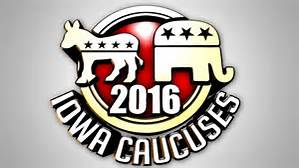
Watching the debates and what is happening in the political area I realized that I am an old fuddy duddy. In my circles we have been talking about what we see unfolding around us for at least 20 years. What we saw coming down the pike those many years ago was the possibility of an institutional religion in which we were constantly shuffling back-and-forth between one set of priorities, principles, emphasis, programs, and activities, that would somehow align us altogether in the one holy Christian Apostolic Church. What we saw coming was the gradual push of Christianity out of the central place in American life, if it ever was there in the first place, to a menu driven society in which church was one of many options that people could pick and choose from. In that nightmare scenario preaching better be excellent, liturgy better be involving an enlightening and memorable. In other words preachers had better be the best they can be, and congregations had better follow suit. Or to put it another way, congregations better be the best they can be, and they need to force their called ministers to do the same. What we also foresaw was a coming system whereby politics would become the new religion. Luther had his struggles with a definition of what “is” means, I wonder if he could’ve foreseen having a president of United States standup in public and say something like “it all depends on what the meaning of “is”, is”.
What we saw coming was a world in which language was uncoupled from its “normal” usage, so that there was no common way of witnessing, proclaiming, or even conversing among different groups of people. It was a concern that is been around for a long time, this idea of “communicating across huge gaps of identity, huge chasms of difference.”
A year before I was born, Stephen Spender wrote an observation from the 30s – “to divide humanity into irreconcilable groups with it irreconcilable attitudes having no common language of truth and morality, is, ultimately, to rob both groups of their humanity. They will be inhumane first to one another, and lastly to their own followers.[1] Todd Gitlin wrote about the politics of the world in flux. He predicted the inability of the left and right to talk sanely about any issue because as he said, “identity politics confronts a world in flux and commands it to stop”, while fundamentalists look at identity politics as an instrument of the “elite”. The most telling statement is that “what frightens both is the flimsy nests of a culture where everything is in motion”.[2]
People who study such things wring their hands over the difficulties we find ourselves in by trying to boil it down to one simple state of affairs. Is the problem individualism? Individualism promotes disaffection and ultimately the conviction that reasoned argument is not possible because each individual is entitled to his or her conception of the good which is not commensurate by definition with everybody else’s”.[3]
If these folks had been paying attention to the curmudgeons, the old fuddy-duddy’s among them, they may have actually come across a little thing called the doctrine of original sin. They might have heard somewhere that Christ is the answer and His death on the Cross transforms life vocation. Those who did hear those words and took them seriously understood that sin as a personal affront to a personal God had to be redefined as public sin. They have succeeded beyond their wildest imaginations.
[1] Steven Spender, “World With in the World, the autobiography of Steven spender. New York St. Martin’s 1994 136
[2] Todd Gitlin, “The Twilight of Common Dreams, Why America is Wracked by the Culture Wars. New York, Holt, 1995 page 223.
[3] Carolyn Miller, Rhetoric and Community; the Problem of the One and the Many” defining the new rhetoric. Ed. Teresa Enos and Stewart see Brown, Newberry Park California: Sage, 1993 pages 79-94.


Good read!